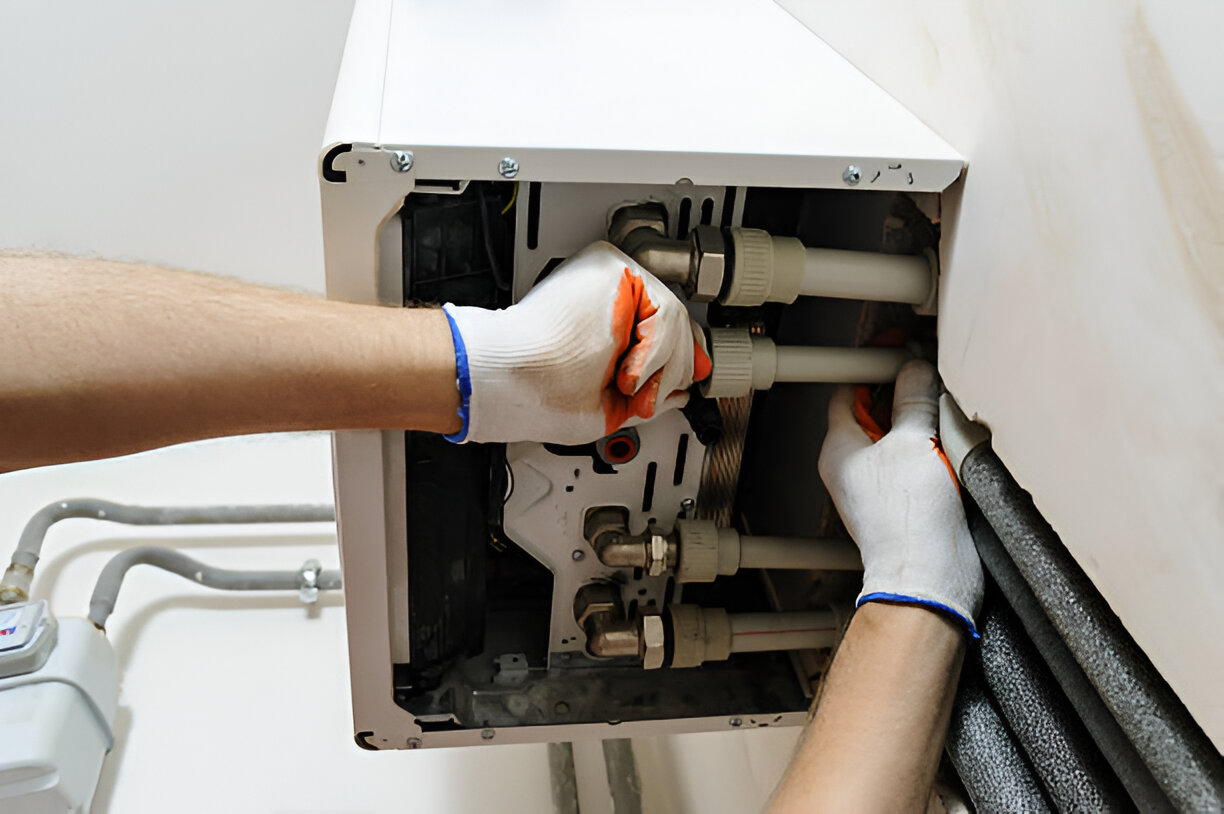Heating Maintenance in Foxfield, CO
Keeping your heating system tuned and ready is essential for Foxfield, CO homes that face cold Front Range winters, wide temperature swings, and dusty, dry air. Regular heating maintenance improves efficiency, extends equipment life, preserves safety, and significantly reduces the risk of a mid-winter breakdown.

Why heating maintenance matters in Foxfield, CO
Foxfield’s higher-elevation Front Range climate puts extra stress on heating equipment. Colder nights, rapid seasonal temperature changes, and low-humidity conditions mean systems run harder and circulate more dust. That increases wear on components, clogs filters faster, and raises the chance of frozen pipes, vent blockage, or heat-exchanger stress. Regular maintenance ensures reliable starts, safer combustion, optimal efficiency, and better indoor air quality through the heating season.
Common heating systems and typical issues in Foxfield
Heating maintenance covers all common system types:
- Gas furnaces (natural gas or propane) — common issues: dirty burners, cracked heat exchanger, pilot/ignition failures, restricted airflow.
- Boilers (hot water or steam) — common issues: scale and sediment buildup, pressure problems, leaking valves, circulator motor wear.
- Heat pumps and hybrid systems — common issues: refrigerant leaks, icing in winter, reversing valve faults, reduced performance at low temps.
- Electric furnaces and baseboard heat — common issues: burned-out elements, failing controls, uneven heat distribution.
Common Foxfield-specific problems include accelerated filter clogging from dry, dusty conditions; thermal stress damage from rapid temperature swings; and vent or flue issues from snow or debris. Manufacturer warranties for many systems also require annual maintenance, so scheduled service protects warranty coverage.
What a comprehensive heating maintenance inspection includes
A professional heating tune-up is a systematic inspection and service that typically covers these key tasks:
- Visual system assessment
- Inspect the cabinet, ductwork vents, and visible connections for corrosion, leaks, or obstruction.
- Check for signs of rodent or pest damage in ducts or plenum.
- Air filter inspection and replacement
- Replace or recommend upgraded filters based on MERV needs and indoor air quality goals.
- Point out HVAC accessories like media filters or UV lights that may need attention.
- Combustion and burner service (gas/propane systems)
- Clean burners and electrodes, verify proper flame pattern, and test ignition components.
- Perform a combustion analysis when applicable to confirm safe and efficient fuel burn.
- Heat exchanger and boiler checks
- Inspect heat exchanger for cracks or corrosion that can cause carbon monoxide risk.
- Check boiler pressure, relief valves, and look for signs of leakage or scale.
- Electrical and control system verification
- Tighten electrical connections, test relays and safety switches, and verify thermostat calibration.
- Inspect and test system controls, limit switches, and emergency shutoffs.
- Blower, motor, and airflow service
- Clean blower wheel, lubricate bearings if required, and verify motor amperage to locate stress.
- Measure airflow and adjust blower speed to match system specifications.
- Vents, flue, and condensate handling
- Clear intake and exhaust vents; inspect flue for blockages or deterioration.
- Clean condensate traps and lines on high-efficiency furnaces and heat pumps.
- Refrigerant and heat-pump-specific tests
- Measure refrigerant charge and look for leaks, test defrost cycle and reversing valve operation.
- Safety tests
- Carbon monoxide check, gas leak sniff test where applicable, and emergency shutoff verification.
Technicians will document findings and recommend repairs or parts replacement prioritized by safety and system reliability.
How maintenance plans or agreements typically work
Maintenance agreements provide scheduled care and predictable service over the heating season. Typical plan features include:
- Annual or biannual tune-ups scheduled before peak heating months
- Priority service scheduling during cold weather and for emergencies
- Discounted diagnostic fees and parts/labor rates for members
- Regular filter delivery or replacement options
- Detailed inspection reports and maintenance history for warranty compliance
- Option tiers: basic tune-up, comprehensive inspection, and premium plans with extended coverage
These plans are structured to reduce surprise breakdowns and give homeowners predictable maintenance intervals and cost benefits.
How scheduled maintenance prevents winter breakdowns
Preventive maintenance addresses the most common failure points before they become emergencies:
- Cleaning burners and heat exchangers prevents ignition failure and dangerous cracks.
- Replacing filters and cleaning blowers maintains airflow, preventing overheating and short cycling.
- Calibrating controls and checking electrical connections eliminates intermittent failures and reduces blower or motor burnout.
- Detecting refrigerant leaks or low pressure in heat pumps prevents loss of heating capacity in cold snaps.
- Clearing vents and flues prevents dangerous CO buildup and ensures safe combustion venting.
A tune-up before the first cold spell reduces the chance your system will fail on the coldest nights when repairs are harder to schedule.
Benefits recap and homeowner maintenance tips
Regular heating maintenance provides measurable benefits:
- Lower energy bills through improved efficiency
- Fewer emergency repairs during peak heating demand
- Longer equipment life and better warranty protection
- Improved indoor air quality and consistent comfort
- Reduced risk of carbon monoxide and other safety hazards
Simple homeowner tips to maximize maintenance value:
- Replace disposable filters monthly during heavy-use months or upgrade to higher-efficiency filters if allergies are a concern.
- Keep vents and returns clear of furniture and debris to maintain airflow.
- Set thermostat setbacks carefully to avoid excessive cycling; consider a programmable thermostat.
- Keep outdoor condensing units and vent terminations free of snow, leaves, and debris.
- Schedule maintenance in early fall when technicians are less busy and systems are inspected before heavy use.
Final note on choosing maintenance for Foxfield homes
For Foxfield homes, where dry air, dust, and frontline elevation stresses drive faster wear, a proactive maintenance schedule is one of the most cost-effective ways to protect comfort and safety through the heating season. A thorough annual tune-up, paired with a plan that matches your system type, helps ensure reliable, efficient heating when you need it most.
Customer Testimonials
.webp)
Buy Today, Pay Over Time
Wisetack - 0% APR up to 24 months (on approved credit)







